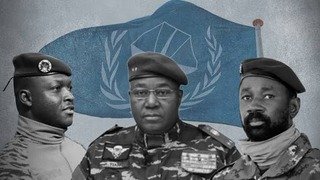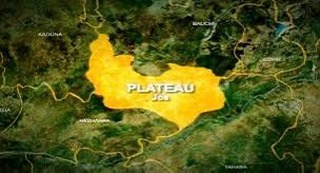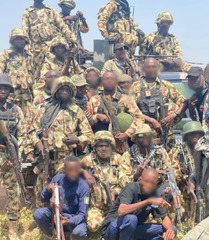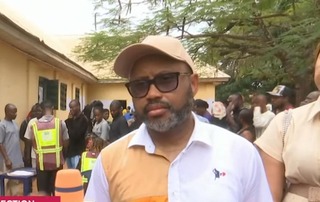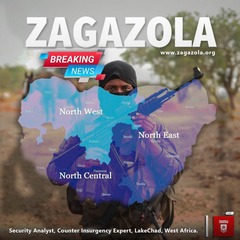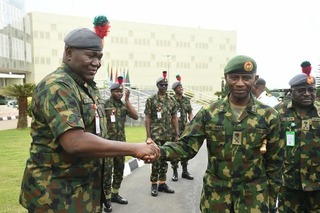Beyond Perry's Thesis on Terror Financing
By
Samuel Aruwan
Effective counter-terrorism efforts require meticulous attention to detail and real-time situational awareness. Every minute counts in security management and counter-terrorism, as intelligence flows continuously throughout the intelligence cycle. To stay ahead of threats, it's essential to scrutinize and analyze all-source intelligence, regardless of origin or credibility, for actionable clues.
My public service experience in internal security management has provided me with valuable insights into intelligence gathering, threat mitigation, and risk management. This involves verifying and validating every piece of information from various sources. These sources include human intelligence (HUMINT), signals intelligence (SIGINT), open-source intelligence (OSINT), geospatial intelligence (GEOINT), and measurement and signature intelligence (MASINT). All these are critical components of a comprehensive intelligence framework.
I have witnessed situations where actionable intelligence was received ahead of time, but it was not given sufficient attention. This lack of attention was due to slow response, leading to an incident. There's also a situation where a non-security component will ignore security advisories. The 2022 attack on the Abuja-Kaduna train is a prime example. Although the military, Ministry of Internal Security and Home Affairs, and intelligence agencies performed their roles effectively, the target's operator failed to utilize the empirical evidence advisories provided.
Conversely, I have seen instances where, upon receiving intelligence, we promptly sprang into action. We leveraged inter-agency collaboration, smooth coordination, and effective information sharing. As a result, terrorists were successfully demobilized and neutralized within their safe havens. This prevented them from reaching their intended target.
Recent allegations made by US Congressman Scott Perry have raised concerns. He stated that the United States Agency for International Development (USAID) funded terrorist organizations, including Boko Haram. These allegations have sparked concerns about potential compromises and confusion to our counter-terrorism efforts. However, it's essential to approach such claims with caution. We must ensure that every piece of intelligence is thoroughly verified and validated before being dismissed or deemed credible.
Within the context of Nigeria's national security, our unified and cohesive approach to intelligence gathering, sharing, and analysis has yielded significant benefits. We are experiencing the benefits of robust inter-agency collaboration, coordination, information fusion, and threat analysis. The interagency collaboration and cooperation we are witnessing confirmed the jointness of heads of the security forces and intelligence agencies. The next phase is further strengthening mobilization of the citizenry to join the national security campaign through robust Civil-Military Cooperation.
To enhance these counter-terrorism efforts, we must prioritize the development of a robust and adaptive intelligence architecture. This can be achieved through sustained investments in human capital, technology, and infrastructure. We must also cultivate strategic partnerships with international partners and stakeholders. Furthermore, we must actively steer our neighbors – Niger, Chad, Benin, Cameroon, Burkina Faso, and Mali – away from tensions and towards effective regional cooperation.
Ultimately, a comprehensive and integrated approach to counter-terrorism and counter-insurgency operations is crucial. It's essential to mitigate the threat posed by terrorists across the subregion. By adopting a nuanced and multi-faceted approach, we can optimize our efforts. We can ultimately ensure a safer, more secure Nigeria.
While acknowledging Congressman Perry's thesis, we cannot disregard the expertise of our scholars. These scholars include Professors Kyari Mohammed, Jibrin Ibrahim, Usman Tar, and Chris Kwaja, Dr. Atta Barkindo, Abdulbasit Kassim, and others. They have extensively researched and reported the origins and evolution of Boko Haram.
In managing complex security challenges, one of the most detrimental approaches is outright politicization. This comes with conspiring theories that further complicate things. Politicizing security issues may offer temporary relief for those advancing sinister agenda. However, it ultimately exacerbates the situation, as it is not grounded in a genuine understanding of the problem. This phenomenon is reminiscent of the "cobra effect." In this effect, purported solutions inadvertently worsen the situation. We must therefore approach Congressman Perry's submission with caution. Experts on the subject matter are sharply divided. Some see Perry's thesis as political, while others hold it as something to interrogate. Further researches and time will decipher the cloud.
Aruwan was Commissioner, Ministry of Internal Security and Home Affairs, Kaduna State (2019-2024).
This email address is being protected from spambots. You need JavaScript enabled to view it.


